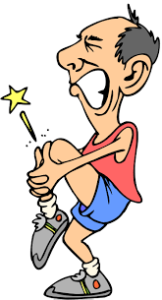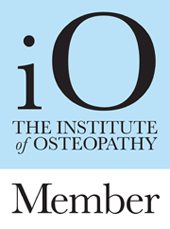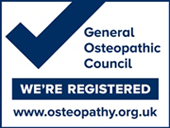Osteopathy & cramp
Introduction
A muscle cramp is a spontaneous or involuntary electrical activity of a large number of skeletal muscle fibres that quickly develops into a painful, sustained contraction (muscle spasm).
Muscle cramps are divided into two categories:
- Exercise-associated muscle cramps (EAMC)
- Nocturnal muscle cramps
EAMC occur during and/or after exercise, whilst nocturnal muscle cramps occur at night time.
Causes
Although similar in presentation, the cause of both EAMC and nocturnal cramps differ. The exact cause of a muscle cramp is not fully understood, but there are a number of hypotheses for each type.
(a) Potential causes for EAMC
- Overuse that fatigues the affected muscle, reducing fibre lengthening between contractions
- Altered neuromuscular control
- Dehydration and altered electrolyte imbalance secondary to extensive sweating
- Incomplete recovery from a previous episode of cramping
- A muscle can be predisposed to cramping if the resting muscle length is short. This can be exacerbated by a fatigued muscle
- Pregnancy
(b) Potential causes for nocturnal cramps
- Dehydration from chronic insufficient fluid intake
- Excessive alcohol consumption
- Electrolyte imbalances (low magnesium, calcium or potassium)
- Short resting muscle length
- Poor blood circulation
- Pregnancy
(c) Other causes
The following medical conditions should be ruled out by a GP if a person is encountering regular muscle cramps.
- Peripheral vascular disease
- Uremia (raised levels of urea and other nitrogenous waste in the blood)
- Diabetes
- Thyroid dysfunction
- Alpha motor neuron disorders
(d) Side effects of medications
Some medications can induce cramping (e.g. diuretics, calcium channel blockers, long-acting ß2-agonists, steroids, lithium and statins).
If a person suspects that their medication may be causing muscle cramps, they should consult their GP.
Relief
The quickest way to relieve a muscle cramp is to slowly stretch it out. Secondly, some evidence suggests that drinking a highly salty drink (e.g. the juice from a jar of pickled onions) can also swiftly relieve a muscle cramp. Lastly, tentatively moving out of the position that caused you to cramp in the first place can also help.
Prevention
- Drink plenty of water (2 litres a day)
- Reduce coffee and/or alcohol consumption
- Stretch the large muscle groups of the lower extremity regularly (e.g calves, hamstrings, gluteals, quadriceps)
- Magnesium supplementation (seek advice from your GP or a pharmacist)
- Warm up thoroughly before exercise
- Stay hydrated before and throughout exercise
Treatment
Identifying the root cause of a person’s muscle cramps is the key to successful treatment. At Woburn Osteopaths we will aim to:
- Lengthen hypertonic (tight / shortened) muscle groups
- Restore joint range of motion
- Strengthen weak muscles
- Advise on lifestyle modifications (e.g. hydration, reducing coffee / alcohol consumption, magnesium supplementation, electrolyte balancing)
- Modify current exercise regimes



